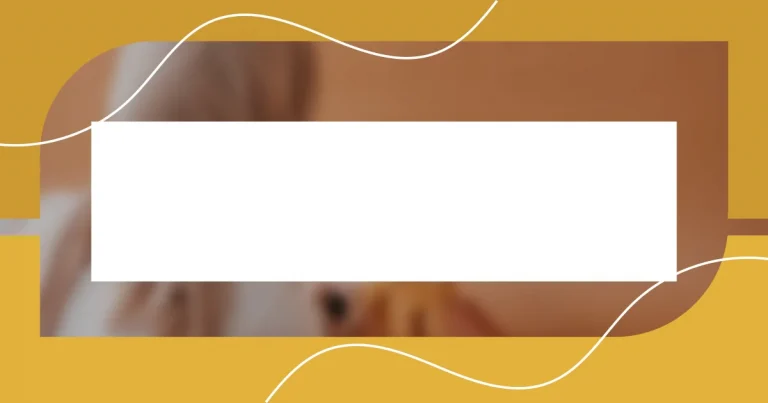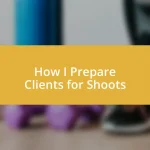Key takeaways:
- Identifying triggers of shyness (fear of judgment, inner critic, and environment) is essential for overcoming anxiety when speaking in front of a camera.
- Building confidence involves practicing in front of a mirror, embracing authenticity, and using pre-filming rituals to create a relaxed atmosphere.
- Engaging in mock interviews and regularly reflecting on progress can enhance confidence, improve delivery, and highlight personal growth in overcoming shyness.

Understanding Shyness and Its Effects
Shyness can feel like an invisible barrier, keeping you from expressing yourself fully. I remember my first time speaking in front of a camera; my heart raced, and my palms were sweaty. It was as if the lens captured not only my image but also the weight of my self-doubt, making me question, “Why is it so hard to just be me in front of others?”
The effects of shyness can ripple out in unexpected ways. When I was hesitant to share my thoughts, I missed countless opportunities to connect and collaborate. Have you ever sat in a room full of people, feeling like an outsider? That sense of isolation only deepened my shyness, fueling a cycle that seemed impossible to break.
Understanding the roots of our shyness is crucial. Often, it stems from past experiences or fear of judgment. I’ve learned that acknowledging these feelings is the first step toward overcoming them. Have you reflected on what makes you shy? Realizing that you’re not alone in this struggle can be incredibly liberating.

Identifying Triggers of Shyness
Identifying the specific triggers of shyness can transform your experience behind the camera. For instance, I used to feel overwhelmed by the thought of sitting down for a video shoot in public spaces. The mere idea of strangers watching left me anxious and tongue-tied. Once I identified that it was the fear of being judged that paralyzed me, I began to explore ways to counteract those feelings.
Another trigger I noticed was my own inner critic. Whenever I stumbled over my words or felt that I wasn’t presenting perfectly, that voice grew louder, telling me I was failing. I realized that this was a pattern; the more I focused on that critical voice, the more I built my own wall of insecurity. By recognizing this, I could challenge those negative thoughts, which was a game changer for me.
Even the environment can play a significant role in activating shyness. For example, I found that recording alone in my room felt safer compared to shooting in a bustling café. This realization taught me to create a comfortable workspace, which lessened the anxiety associated with performance. What settings have you noticed make you feel the most at ease or uneasy? Identifying those can help you find strategies that work for you.
| Triggers of Shyness | Examples from My Experience |
|---|---|
| Fear of Judgment | Feeling anxious when filming in public spaces |
| Inner Critic | Becoming self-conscious when I stumbled over my words |
| Environment | Feeling more relaxed filming in my room than in busy locations |

Building Confidence for the Camera

Building Confidence for the Camera
Every time I step in front of the camera, I think about how to project confidence, even when I’m feeling anything but. One method that really made a difference was practicing in front of a mirror. It might sound silly, but seeing myself express my thoughts allowed me to gauge my body language and facial expressions. The more I did this, the more comfortable I became with my own reflection, diminishing that initial fear I had before filming.
Building confidence isn’t just about rehearsing lines; it’s also about embracing authenticity. Embracing my quirks—like how I often get animated when sharing stories—helped me feel more genuine on camera. Instead of striving for perfection, I learned that being myself fosters connection. That realization alone took a huge weight off my shoulders.
- Practice in front of a mirror to become accustomed to your own expressions.
- Record yourself speaking on topics you’re passionate about; playful enthusiasm breeds confidence.
- Focus on your strengths—perhaps you have a great laugh or a story that resonates with others.
- Introduce a ritual before filming, like deep breathing or listening to uplifting music, to calm your nerves.
- Set small, achievable goals for each recording session; celebrate those wins to boost self-esteem.

Practicing Speaking Skills Regularly
Practicing speaking skills regularly has been a lifeline for me in combating shyness. I remember the first time I recorded myself; listening to my own voice made me cringe. I quickly realized that repetition was key. So, I began dedicating ten minutes a day to simply speaking on various subjects, whether it was sharing a story, discussing a book, or even talking through my day. Over time, those awkward pauses transformed into smoother transitions. Have you ever noticed how much more fluid your speech becomes when you engage in regular practice?
One exercise I find particularly beneficial is recording spontaneous speeches about topics that resonate with me. Initially, I set simple goals, like speaking for two minutes without pausing too much. This not only helped me articulate my thoughts better but also made me excited about the content I was sharing. I remember one time I spoke passionately about my favorite childhood memories, and by the end of it, I felt so energized. It’s like I rediscovered my own excitement through practice. How does it feel when you dive into a topic you love?
Moreover, I’ve discovered the transformative power of self-reflection after these practice sessions. After recording, I take a moment to review my videos, focusing on the areas I did well and what I could improve. Sure, it can be tough to watch myself stutter or mispronounce words, but each critique comes with a lesson. This process has taught me to embrace those imperfections and to see them as stepping stones rather than roadblocks. What has your experience taught you about accepting your own quirks while speaking?

Using Relaxation Techniques Effectively
Using relaxation techniques effectively can be a game-changer when you’re stepping in front of the camera. I remember the first time my nerves threatened to steal my focus. I decided to try deep breathing exercises right before filming. It felt a little odd at first, inhaling deeply and exhaling slowly, but once I got into the rhythm, I noticed a shift. Suddenly, the weight of my anxiety lightened, and I could concentrate on what I wanted to say rather than how I looked.
In my experience, introducing a pre-filming ritual has not only calmed my nerves but also improved my overall confidence. I often play an upbeat playlist that gets me in a positive mood. It sounds simple, right? Yet, music has this magical ability to transform my mindset. I vividly recall one day where a specific song lifted my spirits so much that I found myself dancing a little. By the time the camera was rolling, the anxiety that usually clung to me evaporated, replaced with genuine enthusiasm to share my thoughts.
Have you ever considered how the environment you create prior to filming can influence your performance? I’ve experimented with different atmospheres, and I’m convinced that a relaxed setting can dramatically improve onscreen presence. Lighting a candle or encountering natural light through a window creates a welcoming ambiance. It becomes this intimate space where I feel more like myself. The result? I seem more relatable and comfortable on camera, which resonates with my audience. Isn’t it amazing how little changes can make such a big difference?

Engaging in Mock Interviews
Engaging in mock interviews has been a crucial step for me in overcoming camera shyness. During my first mock session, I was flooded with nerves, but I found that treating it like a casual conversation made all the difference. I vividly recall one instance when my friend, acting as the interviewer, asked me about my hobbies. As I spoke, I felt the pressure lift, realizing that I was simply sharing part of myself rather than facing an intimidating audience.
Another benefit I’ve discovered is how these practice interviews can mimic real-life scenarios, making me feel more prepared for the actual moments. I remember the time I role-played a job interview, and the feedback I received was invaluable. My friend pointed out my tendency to rush through my answers, but it was through that constructive critique that I learned to slow down and emphasize key points. Have you ever noticed how pacing can dramatically change the perception of your message?
What’s more, each mock interview builds confidence, allowing me to experiment with different styles and techniques. One time, I even recorded a session and was shocked to see my progression; I was more animated, engaged, and authentic. Reflecting on that improvement inspired me to keep pushing myself. How does seeing your own growth motivate you to pursue something you once shied away from?

Reflecting on Progress and Growth
Reflecting on my journey, there’s a sense of pride in how far I’ve come in overcoming shyness behind the camera. I’ll never forget my early attempts, where I felt utterly frozen, battling waves of self-doubt. Each time I stepped in front of the lens, I could feel my heart racing. But gradually, with every video I recorded, I began to notice subtle shifts. My confidence started to build, and with it, a newfound eagerness to express myself.
One particularly memorable moment stands out—after what felt like a significant milestone shoot, I reviewed the footage and saw someone different than I expected. I remember looking at the screen and thinking, “Wow, that’s me!” I finally looked relaxed and engaged, not closed off in anxiety. It was a bit surreal, like I was watching my transformation unfold. Have you ever had a moment where your growth surprised you in the best way possible?
In reflecting on this journey, I often ask myself what else can I accomplish when I push past my comfort zone? Each challenge I faced taught me invaluable lessons about resilience and authenticity. For example, I’ve learned that sharing my vulnerabilities makes me more relatable. I remember feeling nervous sharing a personal story on camera, but the positive feedback that followed reinforced my belief that embracing my true self not only helps me grow but also connects me with others. What personal leaps are you ready to take in your own journey?














